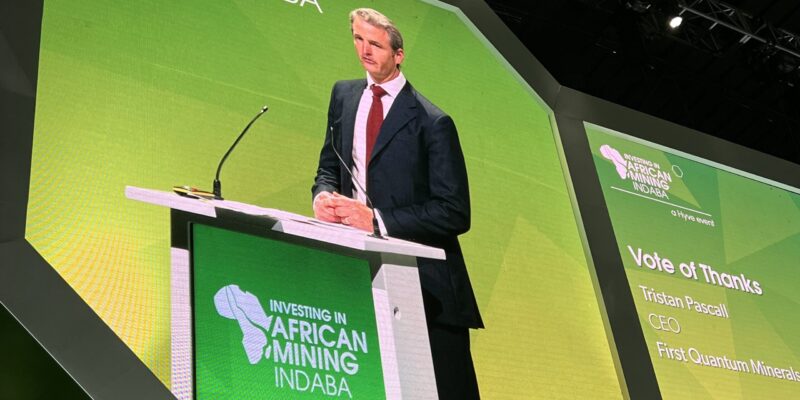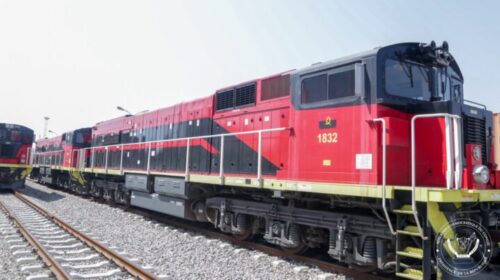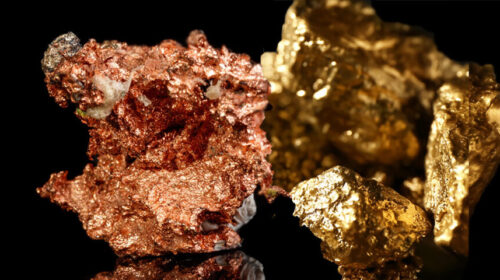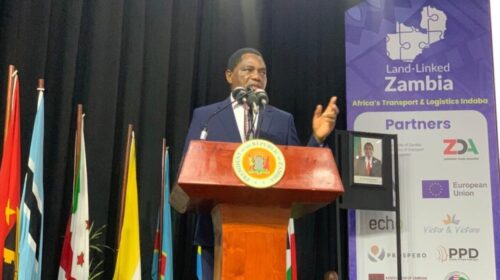First Quantum to make biggest foreign investment in Zambia in a decade
First Quantum Minerals has announced the largest foreign investment in Zambia in more than a decade, providing a much-needed boost for the cash-strapped government of President Hakainde Hichilema as he attempts to complete a debt restructuring.
The Toronto-listed company said it would invest $1.25bn to extend the life of its Kansanshi copper mine until 2044 and a further $100mn to finish the development of its Enterprise nickel project.
“There is an improving investment climate in Zambia whereas in other jurisdictions [such as Chile and Peru] it is looking a little a bit harder at the moment,” said new chief executive Tristan Pascall. “Certainly, there is a window for Zambia to shine.”
The investment comes as Zambia races to complete a debt restructuring after a multibillion-dollar default by Hichilema’s predecessor, Edgar Lungu.
Zambia boasts some of Africa’s largest copper deposits but its production of the metal has flatlined over the past decade, partly because of hostility towards foreign miners including First Quantum, which was slapped with a $7.9bn bill for unpaid tax four years ago.
Hichilema, a businessman who won the presidency in August on his sixth attempt, has promised a very different approach and set an ambitious goal of increasing annual copper output from 800,000 tonnes to more than 3mn in 10 years. One of his first moves, announced in October’s budget, was to make mineral royalties tax-deductible again.
The government has also promised to resolve issues around repayment of value added tax, a flashpoint with First Quantum. “The 3mn tonnes is not plucked from anywhere, anyhow,” President Hichilema told the Financial Times at the annual Mining Indaba event in Cape Town on Monday.
Hichilema’s government is also trying to bring back private investment in the country’s two other main copper mines that were taken over by Lungu. Vedanta lost control of Konkola Copper Mines, a major producer, after Lungu’s government pushed the mine into provisional liquidation in 2019.
The state also took on $1.5bn of debt to buy the Mopani mine from Glencore last year before Lungu lost elections. Both projects are regarded as underperforming. Vedanta has promised investments to get the KCM mine back, but the fallout from the liquidation remains mired in international arbitration.
“Mopani is easier for us . . . KCM is a little bit complicated,” Hichilema said. “One of our issues of interest is to take out litigation — there is so much litigation burden around mining.” Recommended The Commodities NotePeter Leon Zambia must restore foreign confidence to revitalise its mining sector
“We’re talking about unlocking KCM, and unlocking KCM means talking to all partners at the table,” he added, insisting that “there will be a resolution at KCM”. New investors would have to respect the “social contract” around mines, Hichilema said.
“The people of Zambia have to be involved in mining. It’s not healthy for anyone, even an investor, to be alone in a country doing extraction.”
Hichilema confirmed China and France had agreed to co-chair negotiations between official creditors, an important step toward restructuring Zambia’s defaulted debt.
“It is positive that First Quantum has enough confidence in the country’s improving investment climate to make this decision,” said Jackie Przybylowski, an analyst at BMO Capital Markets, in a note to clients.
The expansion project at Kansanshi will allow the mine to keep operating until 2044 at an average annual rate of 250,000 tonnes, while Enterprise will become a global top 10 nickel mine when it hits full capacity.
First production is expected next year. First Quantum said power for both projects would be supplied predominantly from renewable sources, including existing hydropower within Zambia, as well as potential wind and solar power projects that are under consideration.
41 total views , 1 views today





